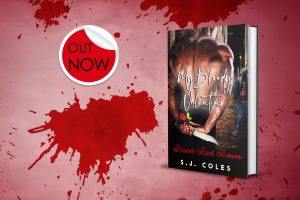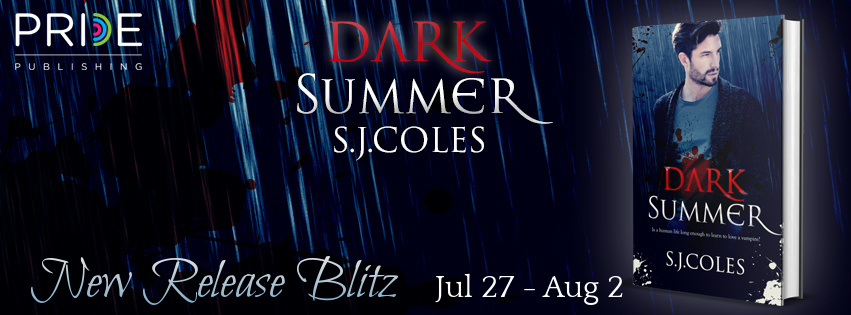
Long and Short Reviews welcomes S.J.Coles who is celebrating the recent release of Dark Summer. Enter to win a FREE eBook from the author!
Is a human lifetime long enough to learn to love a vampire?
The tumultuous events of the Blood Winter are a fading nightmare, and Alec and Terje are trying to build a life together at Alec’s newly restored ancestral home of Glenroe. There’s just one problem… Terje doesn’t appear to be committed—constantly called away on mysterious errands and seemingly unable to forsake his own kind. Alec begins to wonder if Terje is capable of loving anyone, let alone him.
When an old uni friend Jay Singh, recently out of the closet and looking rather too good to be true, returns to Alec’s life, he becomes more conflicted than ever. Things only escalate when Alec is forced into the social and political issues still surrounding the haemophiles’ tumultuous integration into human society and soon it is more than just his relationship on the line.
Can Alec figure out what kind of future is possible with a vampire—and if it can ever be enough for either of them—before it’s too late?
Reader advisory: This book contains scenes of violence, murder, alcohol abuse and blood drinking.
Publisher’s Note: This story is best read as a sequel to Blood Winter.
Enjoy an Excerpt
The sun was warm on my face. The brisk wind brought with it the smells of sun-drenched heather and dry grass. The sky was a shade of blue so bright that it almost hurt to look at it. Summer was spreading through the mountains like molten gold, enhancing the colors and the smells, sinking into my flesh and heating my blood. The wind picked up as I reached the ridge and the sweat cooled on my face.
I stood for a moment, breathing deep, and had to admit that I missed sunshine. I’d kept haemophile hours for so long that I hadn’t even realized summer had come to the Cairngorms. But despite being out in the sun’s heat for the first time in months, the vague chill under my skin didn’t dissipate.
I rubbed a hand over my face and made myself take in the view. The undulating mountains, green glens and glistening jewels of the lochs always made me feel like I was standing alone on the face of heaven. Glenroe perched on its rocky outcrop below, the gray stone dark, even in the midday sun, like it couldn’t quite let go of its shadows. Scaffolding was bright against the dark stone, and even at this height, I could hear the shouts, clangs and rumbles of the dozens of contractors in the final stages of restoration work. It had taken almost two years and more money than I had ever dreamed, but the sixteenth-century hall was now, finally, almost up to twenty-first-century living standards. The new roof still looked odd to me, accustomed as I was to the gaping holes and worn tarpaulin patch jobs I’d grown up with. But the novelty of not having to share the house with the unpredictable Scottish elements had not yet worn off.
But Terje was gone…again. It had been almost a month this time, the longest he’d ever been away. And my doubts had now permeated me almost to the bone.
I’d made myself accept, right at the start, that there were things I would never be able to understand about my haemophile lover. I was now well-practiced at steering my thoughts away from the industrial refrigeration unit behind a locked door in the cellar, stocked with a mysteriously replenished supply of bottled human blood. And Terje had always gone to great pains to explain that he wouldn’t always be around—that, sometimes, he would need to be alone. I told myself that I had accepted that too, and as much as the huge master bed and the high-ceilinged rooms of Glenroe were achingly empty when he was gone, his return was always so full of wonder and pleasure that I soon forgot the strain of his absence.
I’d never met anyone who could absorb my turns of mood like Terje. If I was riled, he let me rant until I ran out of steam, gently questioning to better understand me then offering an insight that either validated or completely deflated my anger. Other times, if there was nothing to be said, he would take my hand and kiss me gently, letting me know without words that it would all be okay, even if he couldn’t tell me how.
As the weeks had turned into months, I’d found my habitual fire easing to a warm, steady glow that was oddly pleasant but so unfamiliar that I didn’t entirely trust it.
We would walk in the mountains by moonlight and Terje would talk about the places he’d been, the things he’d seen. He talked about the mountains of Norway—the peaks, the caves, the rivers and the ice-bound lakes. He said the Cairngorms were a gentler land, raw and wild but rolling and tranquil, the landscape welcoming, the weather more forgiving.
He said I was like the mountains I’d been born in, that I held the same mysteries and beauty, the same potential for both adventure and danger. For the first time in my life, I had started to entertain the idea that maybe I had the capacity to be happy.
Though I also knew there were parts of him I could never reach and, sometimes, he vanished without warning for days on end. But I had endured this, told myself I’d accepted it. But he’d never been away for more than a fortnight before.
We had our final meeting with the architects restoring Glenroe in Edinburgh the next day. I’d booked a room at a haemophile-friendly hotel. We were supposed to be making a holiday of it—a chance to spend time together in a city we both adored, to make love in a new bed and enjoy a change of scene. Now it looked like I would be going alone.
I shook away the gloomy thoughts, knowing from bitter experience that brooding wouldn’t bring him back any quicker, and started back down the mountain, mentally scanning the contents of the new wine cellar. There were several new acquisitions I’d been looking forward to trying, hoping they might taste enough like Terje’s Blood to suppress the craving.
The thought sent a finger of ice up my spine.
My uneasiness changed as I approached the house. The machine noise had died. The men who had been tasked with dismantling the scaffolding were clustered together, exchanging words in low voices. Other men were darting between the demountable field office and the open front door of the hall. As I approached, McGregor, the site manager, came out of the office in rock-climbing gear.
“What’s going on?”
“Got a man missing,” the red-bearded man grumbled in his thick Glaswegian accent. “He went to check on the foundation work and didn’t come back.”
I blanched. “He went into the caves alone?”
“Sounds like it, the silly sod,” McGregor grumbled, shooting a look at a pale-faced man in a helmet and sweat-soaked T-shirt.
“Doug thought he’d better eyeball the foundations before we take the west wing scaffolding down,” the man said. “It was supposed to be a quick check…two minutes tops.”
“No one’s supposed to go down there alone,” McGregor said. “Ye all know the score… MacCarthy, what’re you playing at?” I was already hurrying inside. “MacCarthy”—McGregor dogged my footsteps—”ye better not be—”
“I know those caves,” I insisted, grabbing climbing gloves and a head torch from the racks next to the cellar door.
“You’re a civilian,” McGregor argued. “Let the rescue team—”
“They’re my caves,” I said. “And you aren’t supposed to be down there, anyway. I’m going. I’ll be quicker.”
McGregor started to protest further, but I was already opening the door, noting with a flare of anger that the keypad had been set to ‘unlocked’, then racing down the stairs. The door at the bottom was wedged open with a toolbox, and the lights in Terje’s apartment were all on. The sleeping cell and industrial fridges were both still locked, but I couldn’t stop a surge of anxiety.
By the time I reached the bottom of the second, longer flight of stairs, it was pitch black. The air smelled like stillness and rock. I flicked on the head torch and the echoing emptiness of the Gateway sprang into existence. This high, dry cavern had been cleared of debris hundreds of years before and had been used for everything from sheltering Catholic priests to smuggling illicit whiskey. The rock arched overhead in a series of sharp, black shoulders and the walls were scratched with generations of sacred marks and not-so-sacred graffiti. I hurried past all this to the narrow, black fissure in the wall.
The fissure had been artificially widened at some point in the distant past for some unguessable reason and was the last mark man had made on the Glenroe caverns. It was just wide enough for me to pass through stooped, then I was standing on the lip of a sheer cliff that disappeared into blackness below.
I held my breath and listened. All was silent.
“MacCarthy, you mad bastard,” McGregor grumbled, squeezing through after me, his voice echoing in the cavernous chamber, “get yerself back here or so help me—”
“What’s the man’s name?”
“Doug. Doug Bliss. But we should wait—”
“Bliss?” I called, pitching my voice to carry. The sound bounced off the walls and ceiling then faded away. I called again, then once more. After the third echo faded to nothing, I heard a very faint, plaintive call, so weak that the echo barely reached us.
“That’s him,” McGregor said. “Jesus, Mary and Joseph… Where’s the daft prick got to?”
“He’s somewhere in the east cave system,” I said, scrambling over the edge. “I’ll go find him. When the rescue team get here, have them set up ropes and ladders here.”
“I still think—”
“It would take them hours to get to him,” I cut in as I started to climb, finding the foot and handholds with practiced ease. “I want everyone out of here quickly. Just do as I say.”
McGregor’s muttered reply was lost in the echo of my boots scraping rock. My arms started to burn, a feeling I hadn’t had since my last real climb, years ago. I allowed myself a moment enjoying the pleasant memories it stirred. But then I remembered David Carlisle had been with me and hurriedly shook the thoughts away.
Soon my boots connected with a boulder slide. I scrambled to more level ground then began the arduous clamber across the slanting chamber. Dripping water echoed somewhere to the right. I heaved myself over a rockfall and took a moment to catch my breath. I wasn’t as fit as I used to be, and a stitch was starting in my side.
Bliss’ pained cries were louder now. I stamped down another flare of anger. The man had just risked his own life climbing down this far, and I couldn’t think of a single legitimate reason for him doing so. The events of Blood Winter were now almost two years past, but the memory of Jon Ogdell’s, and other corporations’ before his, desperation to get ownership of this cave system still made my distrust flare. I climbed on, knowing that the sooner this was over, the sooner I could get the strangers out of Terje’s apartment.
Graeme Byrnes Architects were a haemo-friendly company, recommended personally by Ivor Novák, the haemophiles’ head lobbyist and parliamentary representative. They’d installed the apartment, complete with a lightproof sleeping cell and fridges, no questions asked. But the need for Terje’s survival of Blood Winter to remain secret was imperative, and despite Novák’s assurances, I didn’t want anyone poking around anymore than they had to.
I could hear Bliss clearly now. I stretched, preparing to tackle the last scramble, but froze with my hands on the rock. I strained my ears, resisting the urge to shush the whimpering man, trying to decide if I had heard the scrape of something solid moving across the rock overhead. But that was impossible… Those chambers were only accessible with ropes. I’d done it once before, against my father’s express orders, mainly because he’d told me not to. It had been exhilarating, and the cave beyond, known as the Ballroom, was a thing of such ragged, wild and dangerous beauty that I had been dumbstruck and dreamed about revisiting it many times. But my father had confiscated my rock-climbing gear directly after I’d returned, and by the time he was dead, I’d lost interest in the sport—along with a lot of other things.
No one had laid eyes on the Ballroom since.
I stood, listening, holding my breath, but there was only me, Bliss’ labored breathing and the vast, cold silence.
I clambered on. Finally, I spotted the contractor, propped at an awkward angle against a boulder. He squinted up into my light and his expression flattened with relief. He tried to raise an arm but grimaced and clutched his ribs.
“Bliss?” I said, dropping down next to him.
The man nodded, his face screwed up with pain. “Thank Christ,” he panted.
“You hurt?”
He nodded, wincing. “Think…think I busted a rib. That’s…that’s why I couldn’t shout.”
“What the hell were you doing down here?”
The man’s face shifted under its coating of dirt. “Checking…foundations…”
“The foundations are under the house,” I muttered, kneeling and checking his legs for broken bones.
“Thought…thought I heard…something.”
A prickle went up my spine. “What?”
The man shook his head. “Someone moving around. Thought someone was stuck…wanted to check…” He made a pained noise and I let out an impatient one.
“Okay, okay. Stop trying to speak. Can you stand?”
The man took a couple of moments to catch his breath then tried to get his feet under him. I took hold of the arm opposite the injured ribs and, slowly, he stood. He paled under his coating of dirt.
“Broken rib all right,” I said. “Maybe two. Not bloody surprised. This climb’s tricky if you don’t know where to put your feet.”
Bliss nodded. “Yeah, I was fucking dumb. But…but I swear there was someone…”
“Stop talking,” I said, not acknowledging the crawling sensation across my skin. “We need to get you as close to the entrance as we can for the rescue team. You ready?”
Bliss set his jaw and nodded. I steadied my footing then pulled the man’s arm over my shoulders, dug my foot into the first foothold and eased us up.
It was a slow, painful and sweaty scramble, taking over twice as long as the journey in. Bliss was a capable climber and used his feet and legs well, but with one arm over my shoulders and the other clutching his hurt side, it was awkward and labored, and we had to stop frequently for him to catch his breath. By the time we were within sight of the cliff, I was sweating and aching—and not in a way that generated pleasant memories.
Four Mountain Rescue volunteers were ready with ropes and a stretcher. They hurried forward to take charge of Bliss. I spent the time it took to strap him to a stretcher scanning the caves and listening, but nothing moved or made a sound.
I followed the rescue team back into the house, locking all the doors as I went and making a mental note to change the codes. Bliss was loaded into an ambulance as his colleagues watched in grim silence.
I breathed a sigh of relief and was just about to make my way to the workshop when McGregor, having seen Bliss safely on his way, stopped me. His forehead was tightly furrowed. When he spoke, his voice was low.
“Bliss says he heard someone down there.”
“He’s mistaken.”
McGregor frowned harder. “He seems pretty sure.”
“There’s no access apart from through the house.”
“For a human, maybe.”
I kept my face blank. McGregor lowered his voice further. “We’ve installed apartments like yours for lots of clients. It’s our job. But it’s my contractual obligation to remind ye of the law against harboring unregistered haemophiles.”
I took a moment to ensure my voice was steady before speaking. “We provided you with all the registration documentation before the work started.”
“Aye, that I know—or we wouldn’t be here. So why is your friend roaming the caves during the day instead of secured in the cell?”
“The resident of the cellar is currently away. But his whereabouts are, frankly, none of your business.”
McGregor’s lined face shifted. “We’ll leave it there then, sir. You understand it’s my job to check.”
“I understand. Now, if you don’t mind, I have my own work to do.”
I felt McGregor’s eyes on me all the way down the hill.
Clem straightened with a wince from the engine of a ruby-red 1972 VW Beetle at the sound of the workshop door.
“Didn’t think I’d see you today,” Clem said as I pulled on overalls and a mask.
“Thought I’d get ahead on the Triumph,” I said, grabbing the sander and making for the silver Triumph Herald, the only other car in the workshop.
“Phone’s been buzzing.”
I paused. Clem was wiping his hands on a rag and glaring at the Beetle engine like it had just insulted his mother. I retrieved my phone from where it was sitting on the workshop windowsill.
“This fancy company not sorting a new phone mast?” Clem grumbled as I brushed the thin layer of dust off the phone screen.
“I thought you liked being out of phone range?” I said, noting three emails, two text messages and a missed call notification.
“Aye. But it’s distracting, having that thing buzzing away in here all the time.”
“I’ve had all of four calls all year.”
“Yeah…and most of them today.”
My throat tightened. The emails, missed call and one of the text messages were all from Ivor Novák.
About the AuthorS. J. Coles is a Romance writer originally from Shropshire, UK. She has been writing stories for as long as she has been able to read them. Her biggest passion is exploring narratives through character relationships.
She finds writing LGBT/paranormal romance provides many unique and fulfilling opportunities to explore many (often neglected or under-represented) aspects of human experience, expectation, emotion and sexuality.
Among her biggest influences are LGBT Romance authors K J Charles and Josh Lanyon and Vampire Chronicles author Anne Rice.
Buy the book at your favorite online venue or First for Romance.
S.J. COLE IS GIVING AWAY THIS FABULOUS PRIZE TO ONE LUCKY WINNER. ENTER HERE FOR YOUR CHANCE TO WIN A LOVELY GIFT PACKAGE AND YOUR FREE S.J. COLE ROMANCE BOOK! Notice: This competition ends on 10th August 2021 at 5pm GMT. Competition hosted by Totally Entwined Group.

 Small towns are full of secrets, some harder to keep than most.
Small towns are full of secrets, some harder to keep than most. S. J. Coles is a Romance writer originally from Shropshire, UK. She has been writing stories for as long as she has been able to read them. Her biggest passion is exploring narratives through character relationships.
S. J. Coles is a Romance writer originally from Shropshire, UK. She has been writing stories for as long as she has been able to read them. Her biggest passion is exploring narratives through character relationships.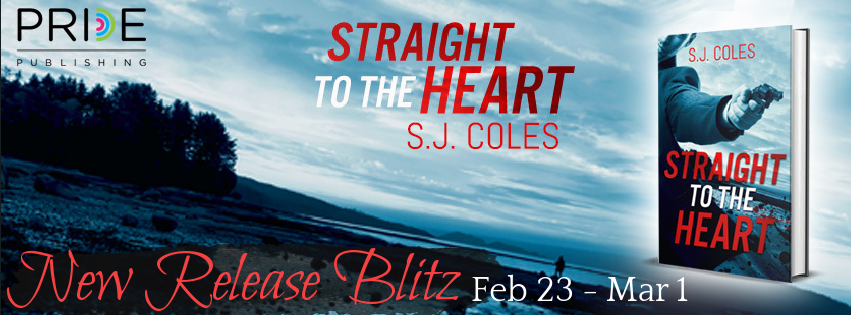
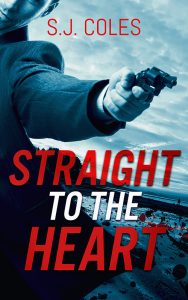 What happens when the person you can’t get out of your head also happens to be the number one suspect in your murder investigation?
What happens when the person you can’t get out of your head also happens to be the number one suspect in your murder investigation? S. J. Coles is a Romance writer originally from Shropshire, UK. She has been writing stories for as long as she has been able to read them. Her biggest passion is exploring narratives through character relationships.
S. J. Coles is a Romance writer originally from Shropshire, UK. She has been writing stories for as long as she has been able to read them. Her biggest passion is exploring narratives through character relationships.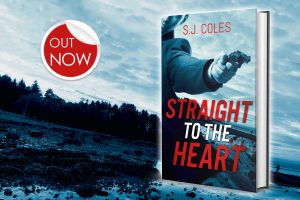

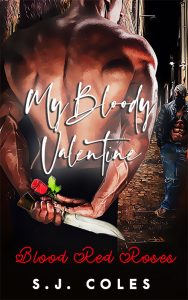 Valentine’s Day isn’t all about chocolates and roses…this year, it’s deadly. These stories are set around the most romantic day of the year, with characters who might just have to fight for their lives as well as their loves.
Valentine’s Day isn’t all about chocolates and roses…this year, it’s deadly. These stories are set around the most romantic day of the year, with characters who might just have to fight for their lives as well as their loves.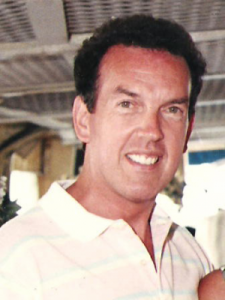 J.P. Bowie was born in Scotland and toured British theatres in numerous musical shows including Stephen Sondheim’s Company.
J.P. Bowie was born in Scotland and toured British theatres in numerous musical shows including Stephen Sondheim’s Company. S. J. Coles is a Romance writer originally from Shropshire, UK. She has been writing stories for as long as she has been able to read them. Her biggest passion is exploring narratives through character relationships.
S. J. Coles is a Romance writer originally from Shropshire, UK. She has been writing stories for as long as she has been able to read them. Her biggest passion is exploring narratives through character relationships.